
Feeling safe at home should always be a priority, and installing a new security system can help you do just that—no matter where you live.
Step up your home’s security game with one of these two types of home security upgrades


Motion detectors cost more up front than window sensors, but you might need more window sensors.
Both window sensors and motion detectors are DIY-friendly.
Window sensors have a longer life span than motion detectors on average.
Motion detectors offer better customization and discretion.
Whether you're moving into a new home or you want to find ways to make your current home more secure, home security upgrades can greatly increase your home safety and give you peace of mind. But with so many types of home security systems and products on the market, how do you know which one is best? Fortunately, we’ve taken out the guesswork so that you can determine whether motion detectors vs window sensors are right for your home.
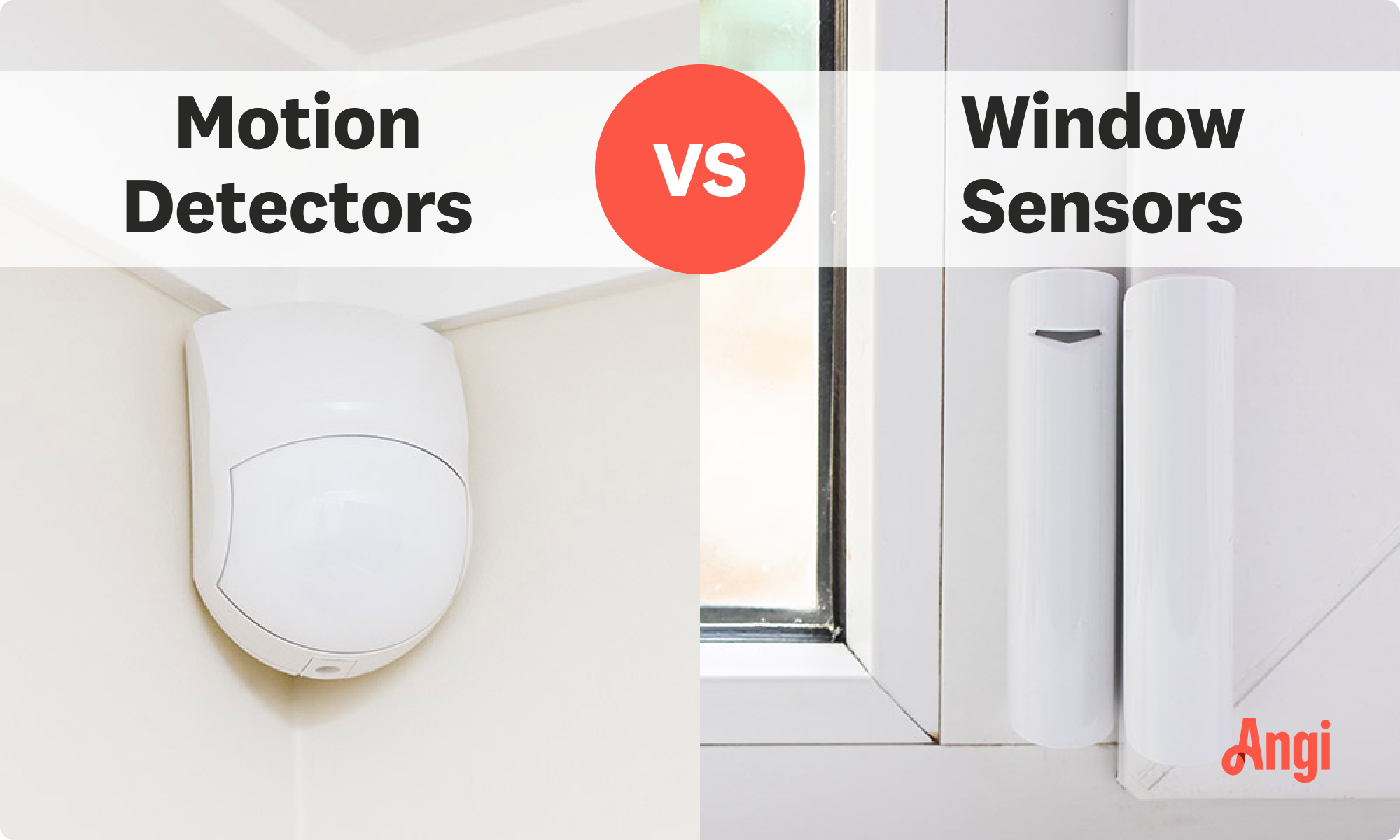
When it comes to motion detectors versus window sensors, either one could be the right choice for your home. It all boils down to your home’s layout, budget, lifestyle, and personal preferences. Overall, motion detectors are best at picking up larger, open spaces, which can make them perfect for a homeowner who wants that added sense of security after someone has broken into their home.
Window sensors, on the other hand, are the best choice for anyone wanting to catch burglars as soon as they lift a window up. These extra seconds could mean the difference between successfully fleeing the scene with your belongings and being stopped in their tracks. However, it’s important to consider all factors before deciding whether one home security feature is better—you might even come to find that a combination of both methods works best.
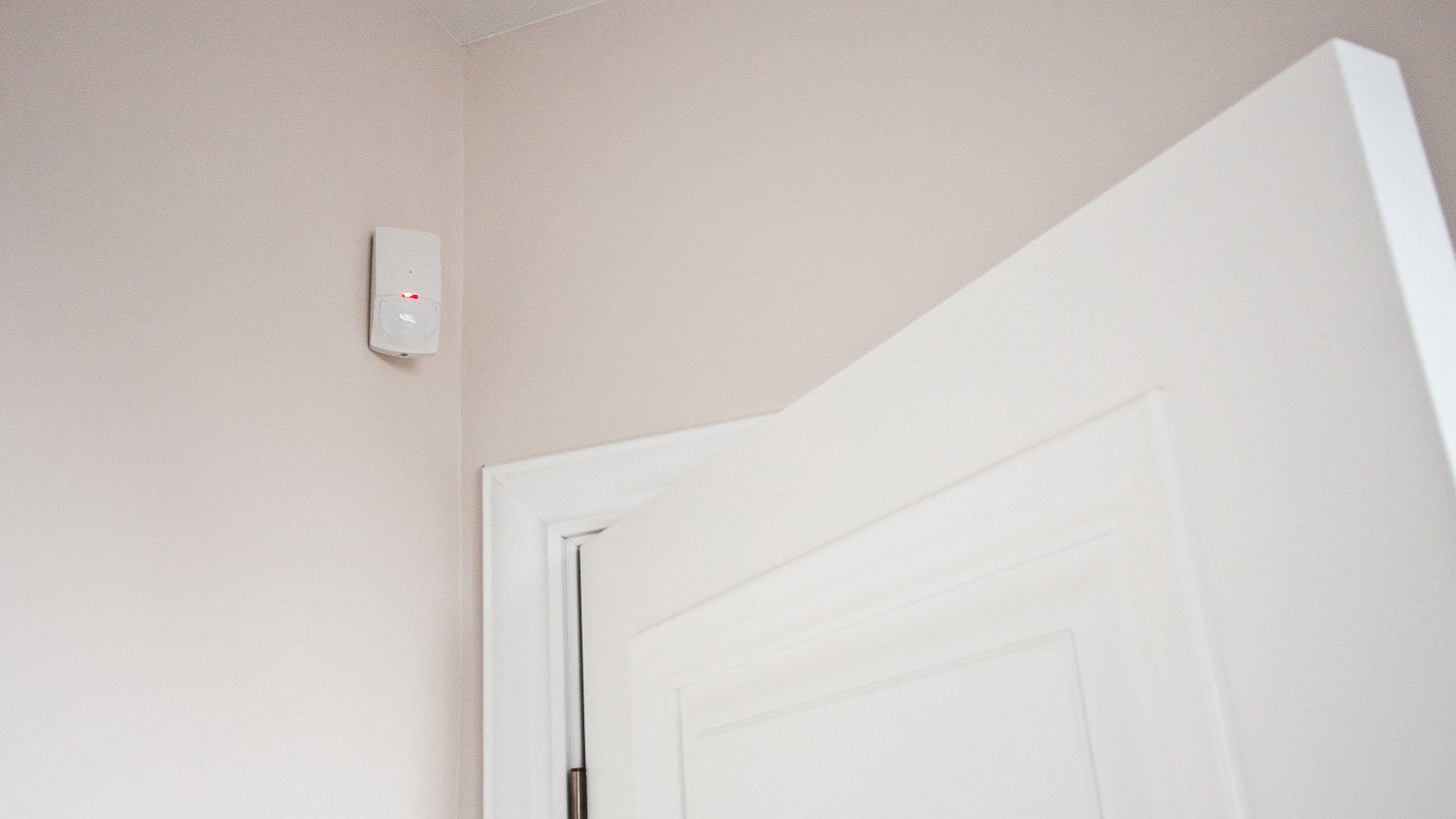
Motion detectors detect—you guessed it—motion. When an intruder walks past a motion detector, it triggers the detector to either light up the area, make a sound, or start recording.
You can have simple motion detectors like motion-sensor alarms that make a sound or send a signal to your phone, motion-sensor spotlights that cast a bright light on the triggered area, more advanced sensors like motion-detecting security cameras, or some combination of the three for maximum security.
| Pros | Cons |
|---|---|
| Cover a broader area of your home | More likely to trigger false alarms from pets, people, or moving vehicles |
| Come in wired or wireless versions | Run out of batteries faster than window sensors |
| Easy to DIY | Harder to catch crime in high-traffic areas |
Best for:
Homes with too many windows for window alarms to make sense
Low-traffic homes
Motion detectors are especially handy for covering an open space inside or outside of your home. These home security features offer more versatility than a Windows sensor, which is limited to your windows and cannot track Intruders before or after opening your window. Motion detectors come and wired or Wireless versions on top of that, depending on the brand you choose.
Where motion detectors fall short is in their life spans and sensitivities. If you live in a high-traffic zone, then any vehicles driving by, wildlife, family members, pets, or passersby can set off the motion detector, creating the illusion of a crime. Not only can this lead to unnecessary worry every time you get an alert, but it can also numb out real threats because you're so used to receiving notifications of false ones.
Additionally, frequent false alarms can quickly drain the batteries of wireless motion detectors, leading to higher battery costs or premature sensor replacement.
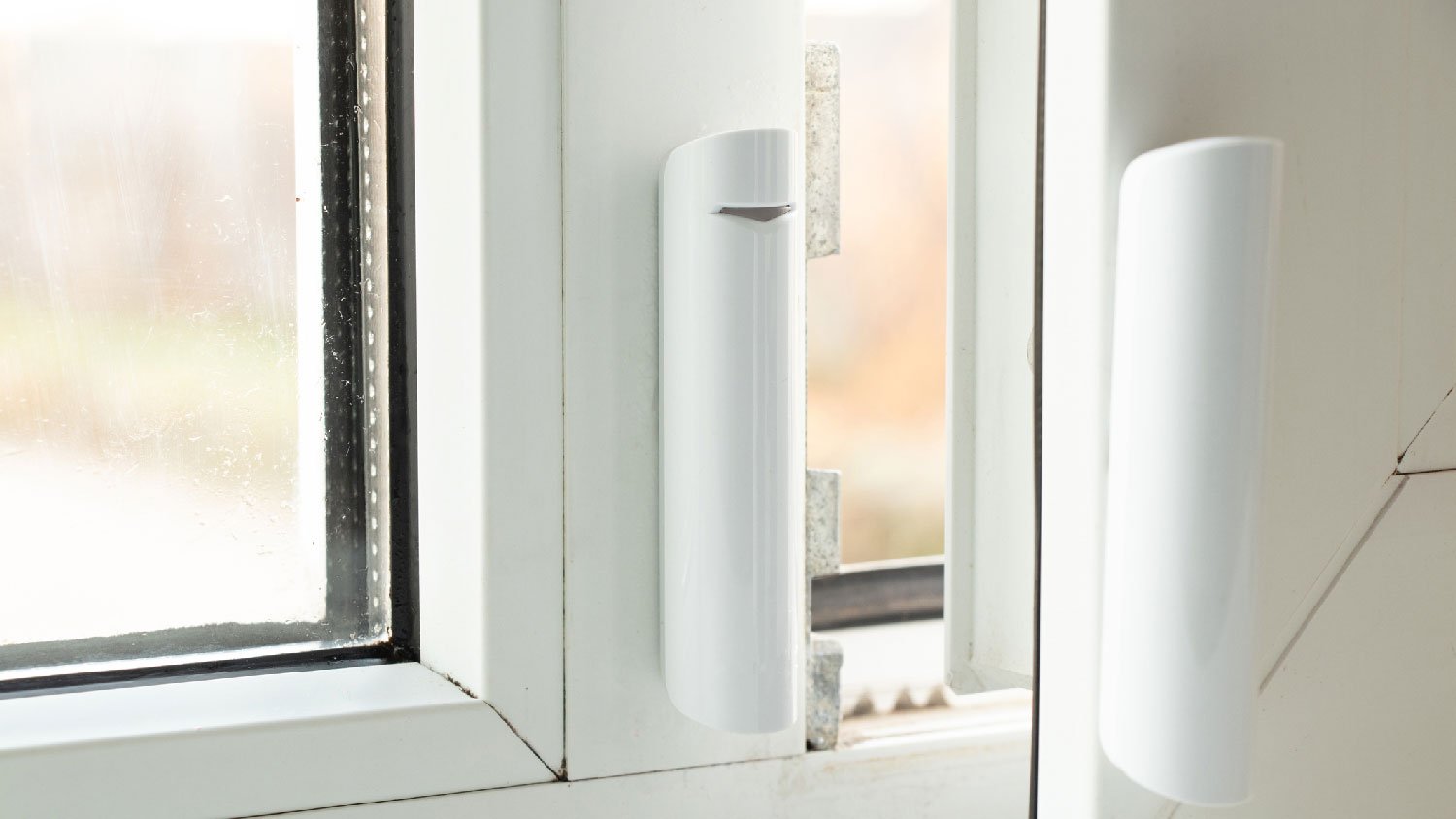
A window sensor is a home security feature that you install on your window to protect your home from burglars who may consider entering from window access points. The most common window sensor is a two-part mechanism that goes on the window frame and the window sash. When the window opens, the separation triggers the alarm.
Some smart home window sensors can send an alert to your smartphone so that you can know exactly when a potential crime is happening and take further actions to protect your home.
| Pros | Cons |
|---|---|
| Effective at deterring burglars | Limited to window security |
| DIY-friendly | Quickly adds up if you have many windows |
| Requires no special hardware | Easy to see mounted sensors |
Best for:
Renters who want to leave no damage from mounting hardware
Those with only a few window access points
DIYers
Window sensors are a great method for catching intruders trying to enter your home by lifting up your windows. Because they don't require any consideration as to where to install them around your house, the installation process on your windows is fairly straightforward, making it a great home security feature for those looking to save money and install Home Security themselves.
An added bonus is that you can easily attach them to your windows and then remove them and take them with you if you plan on moving out later. This can be really appealing to anyone renting a home who wants to avoid drilling mounting hardware into a wall.
One of the biggest downsides to window sensors is that they really only work on windows and doors. If someone is still determined to get inside your home, they can quickly make their way around the house without you knowing exactly what they took because you don't have a motion detector security camera on hand to get a visual image of the crime.
Basic motion detectors might not have security camera footage, either, but you still have the flexibility to upgrade to a motion detector security camera that can catch the intruder in the act. Window sensors are completely limited to your windows and doors.
If you have a sunroom or many windows in your house, a home security system installation cost for many window sensors also adds up fast while also making it glaringly obvious that you have security features on your windows to any experienced burglar.
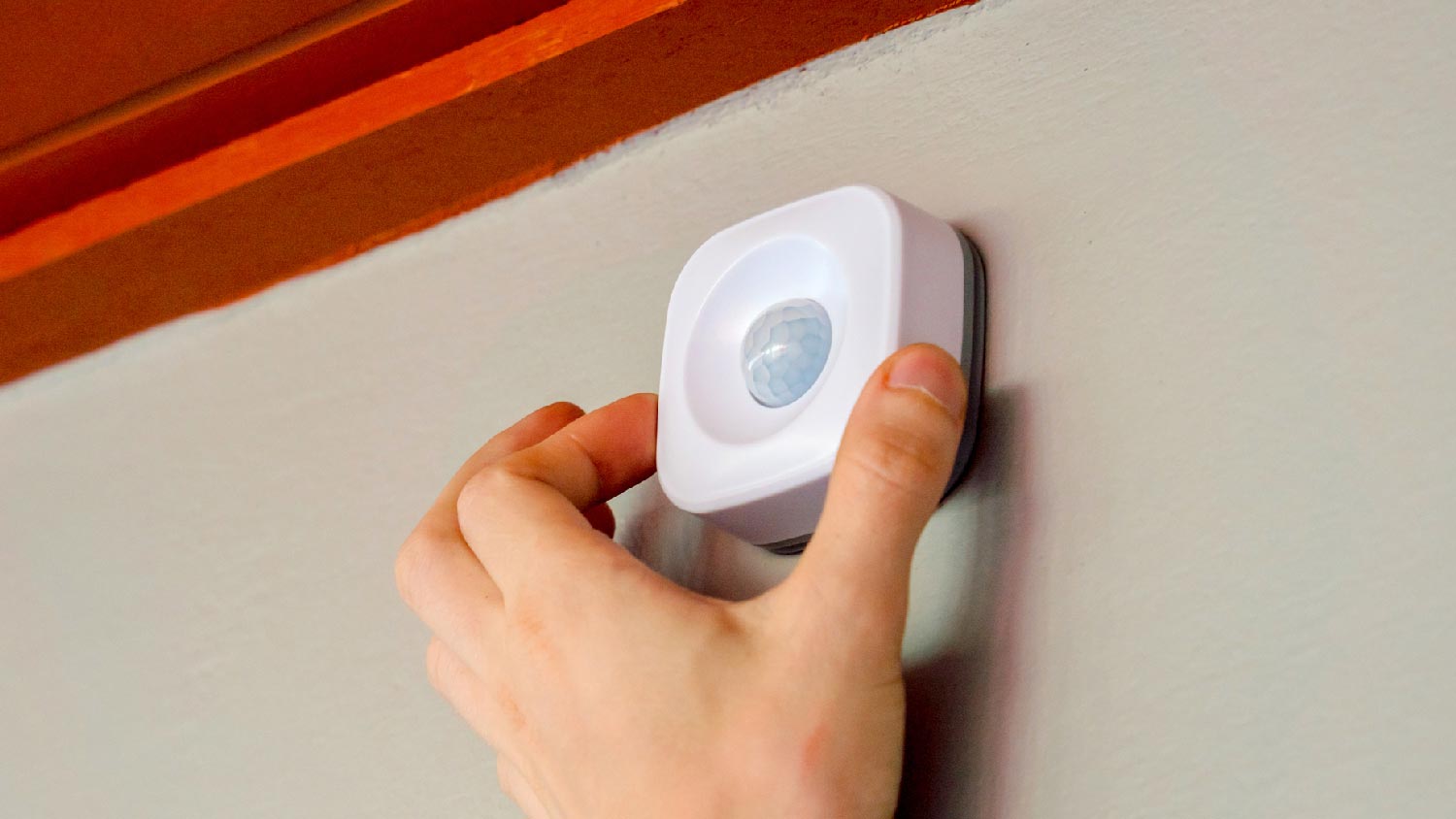
If you’re wondering how motion detectors stack up against window sensors, we’ve compared each based on their appearances, customizations, price, and more and selected a winner based on our findings. Here’s what you need to know.
There's no way around it: window sensors aren't exactly inconspicuous. If you have to install a bunch of them around the house, this can detract from the appearance of your windows when you crank open the blinds or open the curtains to let in some fresh air and sunlight.
Motion detectors can also detract from the appearance of your home, but because there are so many locations where you can install them, you can find clever ways to keep them out of sight while still protecting your home.
While motion detectors are more likely to be tripped off by false alarms due to their nature of detecting motion, this can mean intruders are less likely to successfully sneak around them. Because you can place motion detectors discreetly, it also makes it more difficult for even trained burglars to detect all of your security detectors. Being able to place motion detectors around your home’s interior and exterior gives them another advantage over window sensors.
Conversely, window sensors are more obvious because you can only place a sensor in so many locations around your window and window frame. The window sensors don’t alert you before or after the intrusion, which can be another disadvantage. Lastly, many window sensors aren’t designed to catch anyone equipped enough to identify sensors and enter by breaking the glass. You’ll need to invest in glass break sensors to cover your windows in full.
Window alarm sensors come in three styles: contact sensors, glass break sensors, and motion sensors. Each one serves a different purpose. The first one sends an alarm when the window is opened. A glass break sensor detects when an intruder breaks a glass window, while motion detectors only detect an intrusion once an intruder enters the home and triggers the sensor.
Motion detectors tend to be more versatile in that they can be window motion, room motion, or entry point sensors. You can also find motion detectors as an added feature in many top surveillance cameras and lights on the market. Having motion sensors on a security camera helps conserve energy by only triggering the camera to go off if it detects motion. Eight different types of motion sensors detect motion, allowing you to customize your home’s security further.
Motion-sensor lights cost around $40 per sensor, plus an additional $200 in installation fees if you hire an alarm system installation company near you to set them up. Window sensors, on the other hand, cost between $25 and $300 each, which gives them a slightly lower starting cost and wider price range compared to motion detectors.
There are other types of motion detectors besides window detectors worth considering. For instance, motion-sensor floodlights cost slightly more, with prices ranging from $30 to $400 per floodlight, plus another $200 to $220 to install with the help of a trained professional. Meanwhile, if you choose a security camera with motion detectors, you’ll pay anywhere from $125 to $450 per camera.
Depending on the type of window alarm sensor, some sensors are easier to install than others. But for the most part, window sensors are pretty DIY-friendly.
Motion detectors are usually easy to install as well. They’re not hard to set up—though you might need access to a hard-to-reach or high location to install some motion detectors depending on the window. The main challenge with motion detectors is knowing where to place them to effectively cover vulnerable areas of your home. For this reason, you may prefer to have a professional install motion detectors.
While you can try changing the battery, unplugging, or restarting a smart window sensor or motion detector, there aren’t too many ways to troubleshoot one that no longer works properly if those tricks don’t work. It might not be cost-effective to pay a service fee for a technician to inspect part of an old home security system, either. You’re more likely to benefit from replacing an old device rather than repairing it.
A window sensor lasts up to 10 years on average before you need to replace it. Motion sensors have a similar life span—with one caveat. The life span of a motion sensor depends on how often the sensor goes off.
Window sensors also have a shorter life span if they’re used more frequently, but they’re far less likely to go off since most homeowners don’t activate window sensors often. All it takes is a family pet to walk by a motion sensor for it to go off, which can trigger extra usage and shorten its life span considerably.
From average costs to expert advice, get all the answers you need to get your job done.

Feeling safe at home should always be a priority, and installing a new security system can help you do just that—no matter where you live.

From warding off intruders to protecting from falls, bars on windows can make a home much more secure. Here’s how much it costs to install bars on windows.
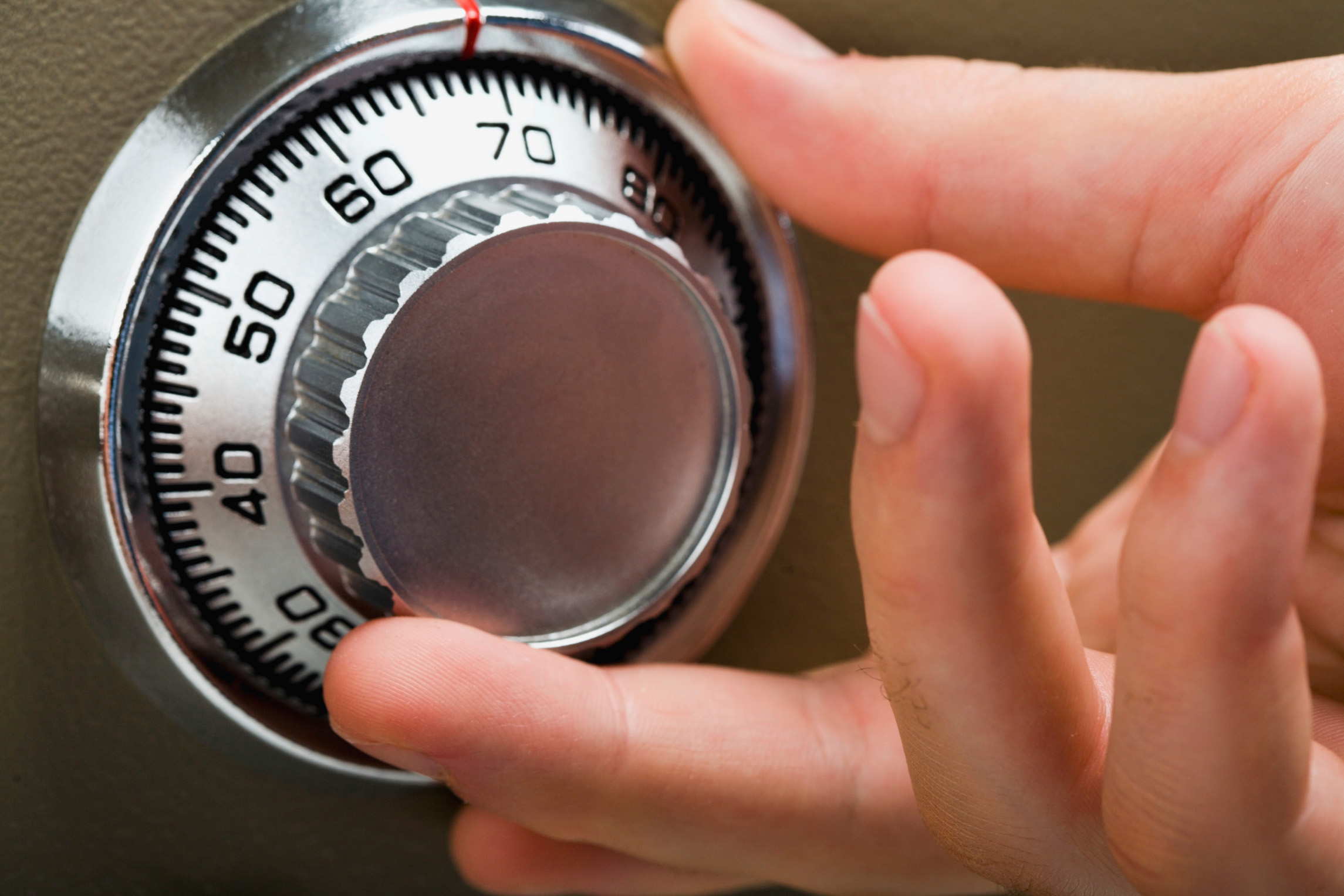
Discover wall safe installation cost details. Learn about average prices, key cost factors, and tips to save on your wall safe project.

Home security tips like increasing exterior lighting and installing security devices can secure your home. Read on to discover more security steps.
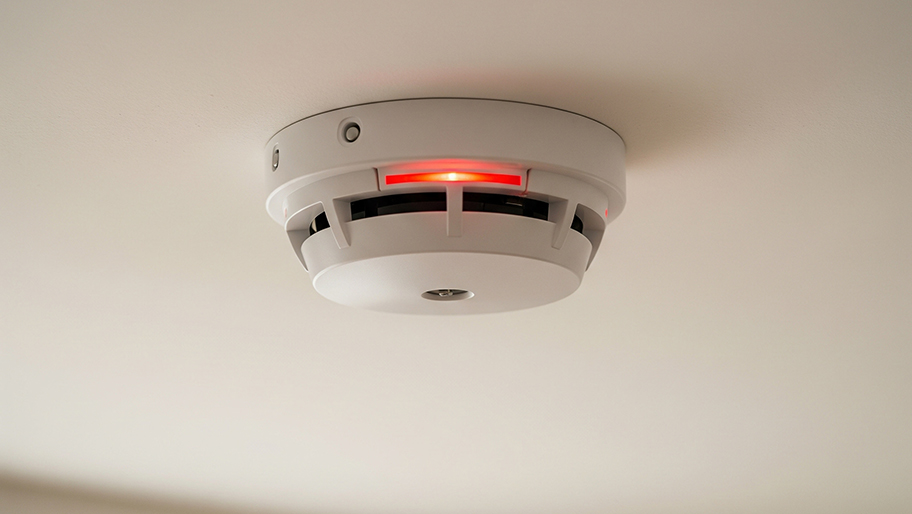
Don't ignore your smoke detector if it has flashing red lights. It could indicate a problem that needs immediate attention. Here's how to tell what to do.

There are many types of window alarm sensors. Find out which is right for you in our easy-to-read guide.